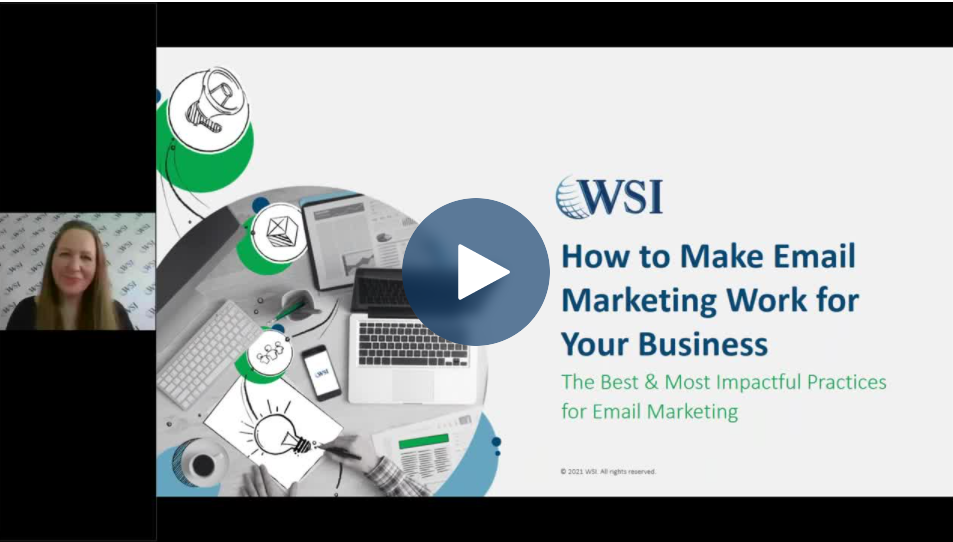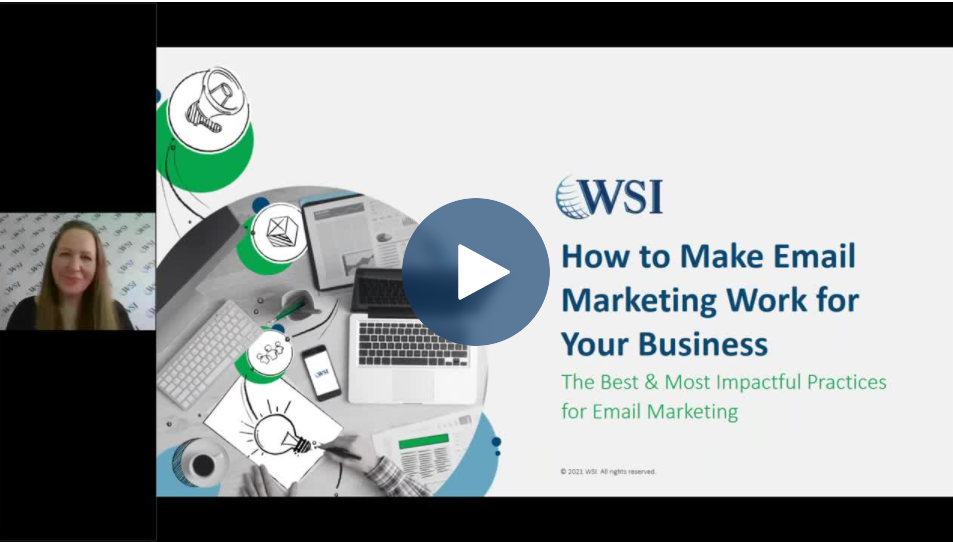RECAP: How to Make Email Marketing Work for Your Business

Summary: Like every powerful tool, email marketing needs to be used properly to yield the desired results. Read these six tips to help you make email marketing work for you.
Email marketing is one of the most effective lead generation tools available to you. It enables you to connect with your target audience in a more personalized way, increase sales at an affordable cost, keep your brand top of mind and deliver a strong return on investment. Like every powerful tool, however, it needs to be used properly to yield the desired results.
In the latest of WSI’s ongoing digital marketing webinars, WSI Marketing Specialist Cynthia Mordecai shares six best practices to help you make your email marketing go further for your business. Catch up on the recording here or read our summary below.
1. Build a Clean List
One of the most important things to avoid when starting an email marketing campaign is list buying. When you use this tactic, you are emailing people who don’t know you or your business, and the email addresses are often outdated. It’s a waste of your time and marketing budget. Instead, you should organically build a clean list made of people who have already shown an interest in your brand and have signed up to receive your emails. Create sign-up buttons and CTAs on your forms and throughout your website and your blog, give the option to subscribe through social media, and ask new clients and prospects directly if they would like to be added to your mailing list.
2. Send the Right Content
Next, once you have a decent mailing list in place, make sure you are sending the right content to your subscribers – and at the right time. Good mail content includes welcome / thank you emails, blog newsletters, company/brand announcements, surveys or requests for feedback, order confirmations, shipping confirmations, or reminders that customers still have items in their shopping cart. To know if you are sending the right content, review your analytics and study your target personas. If necessary, segment your lists and customize your content to suit each segment.
3. Improve Deliverability and Open Rates
Everybody asks when they should send their marketing emails. It is different for every business and will also vary depending on your list segments, content, and objectives. There are some general rules that have emerged from research and experience, however. For example, 10AM seems to be a very good time to send emails, and Tuesday appears to be the best day of the week, with Thursday and Wednesday coming in second and third respectively. These are good starting points, but you should then test, analyze the results and optimize your approach. Your target market may prefer to open your mails on a Friday afternoon for some reason. See what works for you.
4. Test Everything
Test everything you do. You can test the effectiveness of subject lines. You can test content and design or what effect the “From” email address has on deliverability and open rates. Whatever you do, try it out and then test the results. Then change it if necessary. Each variable determines what specific results or data you are looking for, so focus on one at a time.
5. Automate Drip Campaigns
A drip campaign is a series of emails automatically sent out to your audience, with each email being after the audience performs a specific action. Drip campaigns save time, nurture relationships to keep brands top of mind, and can provide value and increase sales.
6. Track and Measure
You can’t improve what you don’t measure. Data analytics enable you to test the effectiveness of your email tactics and adjust them as needed. Check industry benchmarks for variables such as open rates, but also analyze your own data and make that your primary baseline.
Conclusion
WSI is the world’s largest digital marketing agency network. Contact us for expert help building your email marketing campaigns or for assistance with all other aspects of digital marketing. You can also catch up on the full webinar recording here:

About the Author
Rick spent 20 years in the insurance industry in finance, primarily developing reporting platforms for B & C stakeholders. His ability to speak to consumers of data (managers and analysts) and translate their needs to programmers led him to start his own digital marketing agency in 2004 to develop data driven solutions for business owners.
The Best Digital Marketing Insight and Advice
We are committed to protecting your privacy. For more info, please review our Privacy and Cookie Policies. You may unsubscribe at any time.
Don’t stop the learning now!


